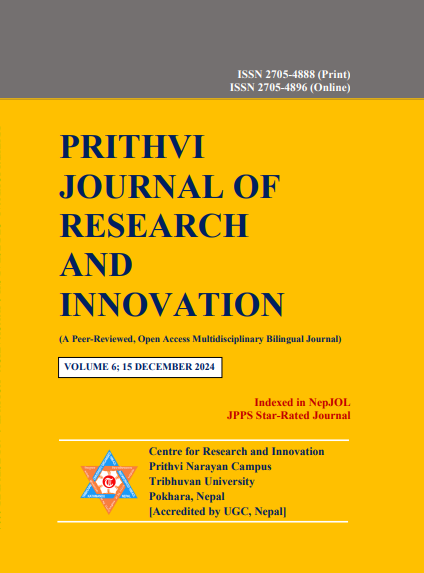Impact of Behavioural Intention to Use Generative Artificial Intelligence on Academic Performance of Students in Higher Education Institutions
DOI:
https://doi.org/10.3126/pjri.v6i1.72853Keywords:
Academic performance, behavioral intention, generative artificial intelligence, higher educationAbstract
The rapid advancement of Generative Artificial Intelligence (GAI) technologies has significantly impacted various sectors, including higher education. This study investigates the behavioral intention of students in higher education institutions to adopt GAI and its effect on their academic performance mediating the intention to use GAI. This study uses an analytical cross-sectional design to assess the current relationships among behavioral intention factors, intention to use GAI, and academic performance. Data were collected using a quantitative approach from 279 online and 105 student self-administered responses through purposive sampling. Purposive sampling was employed to target students with GAI experience, ensuring relevant insights aligned with the study’s objective of examining adoption patterns among the active users in higher education settings. The students represent seven higher education institutions that are accredited by the University Grants Commission, Nepal. A seven-point Likert scale measured variables like performance expectancy, effort expectancy, social influence, facilitating conditions, intention to use GAI and academic performance. The final sample size was 384, and pilot testing ensured instrument validity. Data analysis was conducted using SMART Partial Least Square (PLS). SmartPLS was chosen for its capacity to handle complex models, making it suitable for analyzing predictive relationships without requiring the normal data distribution. The results show that all the factors of behaviorual intentions significantly influence the intention to use GAI; however, the effort expectancy and social influence did not influence academic performance. The mediating role of intention to use GAI was also ensured. The findings highlight the need for educational institutions to provide targeted training and clear ethical guidelines for responsible GAI use, emphasizing its integration into curricula to enhance academic performance.
Downloads
Downloads
Published
How to Cite
Issue
Section
License

This work is licensed under a Creative Commons Attribution-NonCommercial 4.0 International License.
© Centre for Research and Innovation (CRI), Prithvi Narayan Campus (TU)

